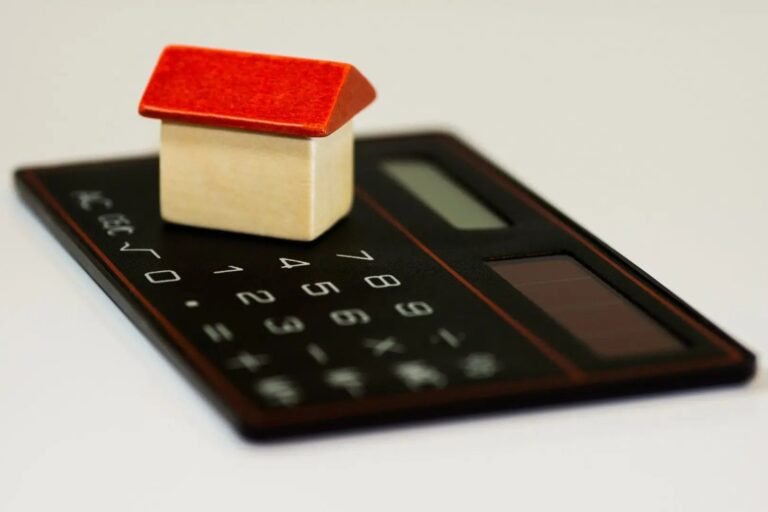Death is frightening, but more frightening for the wealthy, because HMRC takes 40% Inheritance Tax from your properties (leaving just 60% for your children).
You cannot avoid death but can get rid of Inheritance Tax (IHT) by investing your cash/properties in trade. You can transfer/gift your trading business to your family without paying IHT (or paying half only).
Mainly, this relief (Business Property Relief) is available on business, business shares as well as business properties.
- Business transfer: Transfer of sole trading business or partnership share entitles to 100% Business Property Relief from IHT.
- Transfer of shares: Transfer of shares in unlisted trading company (including AIM shares) get 100% BPR (AIM shares are treated as unlisted shares for BPR purposes).
- Properties: Transfer of personal land, building, plant and machinery used in your partnership, trading business or company allows BPR at the rate of 50%.
Conditions for Business Property Relief (BPR)

Below conditions must be fulfilled to get BPR in the UK:
- Trading activity : Only the trading activity attracts BPR. Property letting business is not considered trading by HMRC, hence not eligible for BPR.
- Ownership of two years : Only the transfer two years after owning the asset qualifies for BPR. So, the donor must have owned the properties for at least two years before the transfer. In case of a couple, if a spouse owns a property, but dies before two years, leaving the property for the other spouse, the two-year period starts from the date of first ownership (not on the date of transfer to the spouse).
- Business use: BPR in the business properties can be claimed only if the properties are used (or intended to be used) for business. The property the business owns but does not use (nor necessary for future use) is ineligible and is excluded from BPR.
Tax Planning With BPR
A BPR is not something you can claim right away. It requires a step-wise planning (patience too):
Step 1.
Start a trading business (investment business including property rental business does not qualify)
Step 2.
Transfer your personal properties into business (consider Capital Gains Tax implications)
Step 3.
Wait for two years
Step 4.
Gift the business to your descendants and enjoy BPR
Holding the asset for two years is necessary before a BPR is claimed. Gifting the business (property) before two years does not qualify for BPR. After two years, you (or your spouse if you are not alive), can gift the business property and secure BPR.
Gifting the property/business to a Trust before you die also entitles you to BPR, but the recipient must use the property/business for trading until you pass away. If the property is sold before your death, must be replaced within 3 years, and used in the business.

For example,
Since March 2020, Romeo has been owning TP Ltd which manufactures and sells toothpaste. The company uses a warehouse (worth £690,000) Romeo owns. Romeo dies in July 2023 and this company is the only property in his estate. The property is transferred to his son John.
If BPR is claimed on warehouse, calculate how much tax is saved (ignoring BPR available on transfer of company shares).
Calculation of the IHT payable
Description | IHT with BPR £ | IHT without BPR £ | Saving by BPR £ |
|---|---|---|---|
| Transfer of Warehouse | 690,000 | 690,000 | ——- |
| Less: BPR @ 50% | (345,000) | —— | ——- |
| Less: Nil rate band | (325,000) | (325,000) | ——- |
| Taxable | 20,000 | 365,000 | ——- |
| Immediate IHT @ 40% | 8,000 | 146,000 | 138,000 |
Here, claiming BPR lessened Inheritance Tax for John by £138,000.
Which business qualify and which does not ?
- Furnished holiday lettings
- Property development businesses
- Trading Business
- Investment & Securities
- Stocks or Shares
In summary, the businesses that fully engage in trading (or conduct trading as their main business) qualify.
BPR on Transfer of Companies
When you transfer a company, it is the value of share that gets BPR. Shares (whether ordinary or preference) in an unlisted trading company (including overseas companies) are eligible for 100% BPR. So are the loan notes or debentures of an unquoted company you Control. (Generally, you control a company if you own more than 50% of the ordinary shares.)
BPR on Transfer of Sole Trading
When you gift sole trading business, 100% BPR is available on the Net Value (Assets used in the business minus Liabilities) of the business.
Claiming BPR
BPR is claimed by filing up two forms by the executor of your will or the administrator of your estate:
The Pitfalls of Using BPR
There are some drawbacks and challenges of using BPR as listed below:

Unused Assets
BPR is available on assets used in the business, not for idle assets. Properties or cash owned but not used (and unlikely to be used later) do not qualify for BPR. Make sure you withdraw dividends periodically, rather than leaving too much surplus cash.
2.
Binding contract
Before you pass away, if there was an agreement to sell the asset, BPR is denied. This is called binding contract for sale. The partnership agreement clause usually requires the share of one partner (who passes away) to be transferred to the surviving partner.
Such conditions (considered binding contract for sale by HMRC), restrict BPR. To get rid of this problem, the clause should be replaced by cross option (surviving partner is not bound but can opt to buy). This is not considered binding contract and will avail BPR.
3.
Transfer to a trust
In case of transfer to a trust (lifetime transfer), BPR is available on immediate charge of 20%. But if the trust sells the property before the donor dies, BPR is clawed back, and 20% IHT(Inheritance Tax ) payable upon your death.
4.
Capital Gains Tax
Business properties get relief from IHT. However, Capital Gains Tax might apply on rise in the value of property between the time you purchased and transferred (though you can hold Capital Gain Tax through holdover relief ).
How to Maximise BPR
To make the best use of BPR, if you have any personal properties used by the business, you need to transfer them to the business. Gifting your personal properties used for business gets 50% BPR.

But gifting the properties owned and used by your business ensures 100% BPR. So, it is beneficial first to transfer your personal properties to the business (before it is finally transferred to your children/family member).
Frequently Asked Questions
Inheritance tax is payable based on the tax residence status of the person from whom you inherit the property (let’s say your parents for ease). If your parents are UK resident/domicile, then you need to pay IHT in the UK properties you inherit. But you can claim business property relief if it is a trading business and other conditions are satisfied.
Evasion of IHT results in heavy penalties. Rather than evading IHT, we recommend you do estate planning to avoid or reduce paying IHT.
Estate valued more than £325,000 is subject to IHT. But you can reduce the value of your estate by making some exempt gift- gifts to charities, small gifts up to £250 per year in total, gifts on marriage (£5,000 to son/daughter, £2,500 to grandchild, or £1,000 to any person) etc.
How you can transfer your business property without paying IHT is by claiming BPR (if you meet different conditions). But it can trigger capital gains tax (if the value has risen since you acquired the property).
Conclusion
To make sure you make maximum use of BPR, ensure your will is written well and be in touch with IHT experts like us. We can understand the risk and benefits of BPR and advise you the best solution









